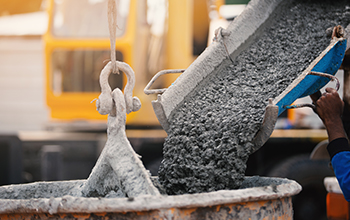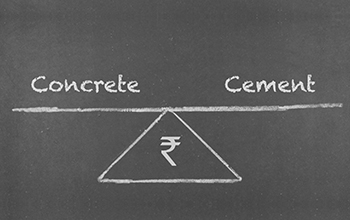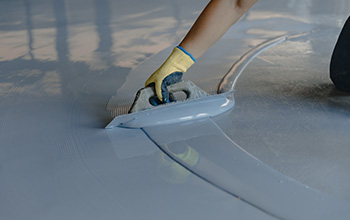
From cost estimation to the selection of the right building materials and everything in between, use these below tips & checklists to be well-planned about the best practices of home building across different stages.
As a construction professional, you play a vital role in the quality of construction for your clients. In the sections below, we have attempted to create a ready reckoner for various products and processes used in construction.
Our tools aim to tackle the various obstacles that arise during the process of home-building. It's crucial to have access to tools specifically tailored to your unique requirements. By utilizing our carefully curated tools, you can make well-informed decisions and effectively overcome challenges along the way.

In this blog, we will look at the effects of improper curing of concrete and how you can avoid them. Read complete blog to know more!!

In almost everything we do; cost is usually at the forefront of our minds and constructing a house is no different.

While a number of options have emerged for flooring in India, many consumers still want to consider cement flooring,
OPC offers quicker setting time and high early strength while PSC offers long-term durability.
PSC is made by grinding clinker together with gypsum & slag (a by-product of iron in blast-furnace) while PPC is made by grinding clinker together with gypsum & flyash (a by-product of coal combustion).
Yes, PSC can be used for roof construction as it offers long-term strength and durability.
PPC is a special blended cement useful in any concrete and mortar work.
OPC 53 Grade Cement is the recommended type of cement for all RCC work as it offers high initial and ultimate strength but other grades of cement, including blended cements (PPC, PSC, CC) also work well.
Yes, PSC can be used for concrete application as it offers long-term strength and durability.
The main difference between OPC 43 & 53 grade cement is the compressive strength gained at different ages i.e. 3, 7 , & 28 days
The values 33/43/53 indicate the minimum compressive strength of cement cube after 28 days of curing.
Blended Cements such as CC, PPC & PSC are best suited for plastering application.
OPC, CC, PPC & PSC are all suitable for dhalai/roof application.
You would need 80 bags of 50 kg each to construct a roof slab of 1000 sq. ft. area and slab thickness of 4 inches.
For more information, contact Dalmia Build Advisor or reach us out at 18002020.
Cement is manufactured in a controlled process with raw materials that are rich in elements like calcium, silica, alumina and iron. When heated at high temperatures, the elements in the raw material fuse and upon cooling they form clinker. Clinker is then ground along with other materials such as gypsum into a fine powder called cement.
For specific information, contact Dalmia Build Advisor or reach us out at 18002020.
Colour does not have any effect on cement properties. Its strength is defined by the proportions of raw material mix.
For specific information, contact Dalmia Build Advisor or reach us out at 18002020.
Ready-mix concrete is pre-mixed concrete prepared in a concrete plant before it is transported to the construction site.
Manually mixed concrete is prepared right at the site using cement mixed with aggregates in a small mixing unit.
For specific information, contact Dalmia Build Advisor or reach us out at 18002020.
For slab casting, the recommended choice is OPC or PPC cement. However, Dalmia DSP cement gives you a definitive edge over these, with higher overall strength and quicker setting time.
For specific information, contact Dalmia Build Advisor or reach us out at 18002020.
For residential slabs, mix 1 part of cement, 1 ½ part of sand, and 3 parts of gravel. You should mix these with approximately 22 to 25 litres of water per bag of cement used.
For specific information, contact Dalmia Build Advisor or reach us out at 18002020.
For outer wall surfaces and ceiling, the ratio of cement to sand should be 1:3 to 1:4
For inner wall surfaces, the ratio of cement to sand should be 1:4 to 1:5
For specific information, contact Dalmia Build Advisor or reach us out at 18002020.
For 9-inch thick walls, the ratio of cement to sand should be 1:6 and for 4 ½ -inch thick walls, the ratio of cement to sand should be 1:3
For specific information, contact Dalmia Build Advisor or reach us out at 18002020.
Cement remains in good condition as long as it does not come in contact with moisture. However, if cement is more than 3 months old, it should be tested for its strength before use.
For specific information, contact Dalmia Build Advisor or reach us out at 18002020.
There is no fixed method to cure a plastered surface. However, you need to ensure that the wall surface is wet at all times, so that the cement gets enough water to set. This can be done either by using a pipe connected to a tap or a mug & bucket.
Cement usually completes 80% of the setting in the initial 14 days. Therefore, we recommend curing for the first 2 weeks with occasional curing once in 3 days thereafter.
Building in-wall closets is a tried and tested way to increase storage spaces for your home.
You can use Dalmia Cement to make cupboards that are resistant to moisture and termites.
Colours may be added to concrete by adding pigments.
Geometric patterns can also be stamped or rolled into the concrete to resemble stone, brick or tile paving. Textured finishes in concrete surfaces might vary from a smooth polish to the roughness of gravel.
For specific information, contact Dalmia Build Advisor or reach us out at 18002020.
Durability is the most important thing to consider in material for coastal construction.
Therefore, the sand, aggregate and water used for making mortar and concrete needs to be free from harmful salts, chlorides, sulphates, as they can adversely impact the strength and durability of the construction.
Also, it is recommended to consult a structural engineer to design the structure and adhere to the recommended grades of concrete for the structure.
Contact Dalmia Build Advisor or reach us out at 18002020 for more information.
Due to high humidity in coastal areas, moisture resistance becomes critical to ensure long term durability and strength of the construction.
It should be noted that a well-made concrete roof is inherently moisture resistant. However, to ensure moisture resistance, observe good construction practices such as- using good quality ingredients to make mortar and concrete, sand, aggregates and water, their proper proportioning, mixing etc. This should be followed by proper curing for the recommended duration.
Contact Dalmia Build Advisor or reach us out at 18002020 for more information.

RCF stands for Roof, Column, and Foundation and is the core structural system of any building, responsible for overall stability and load-bearing capacity. Therefore, RCF Strong. Toh Ghar Strong.

